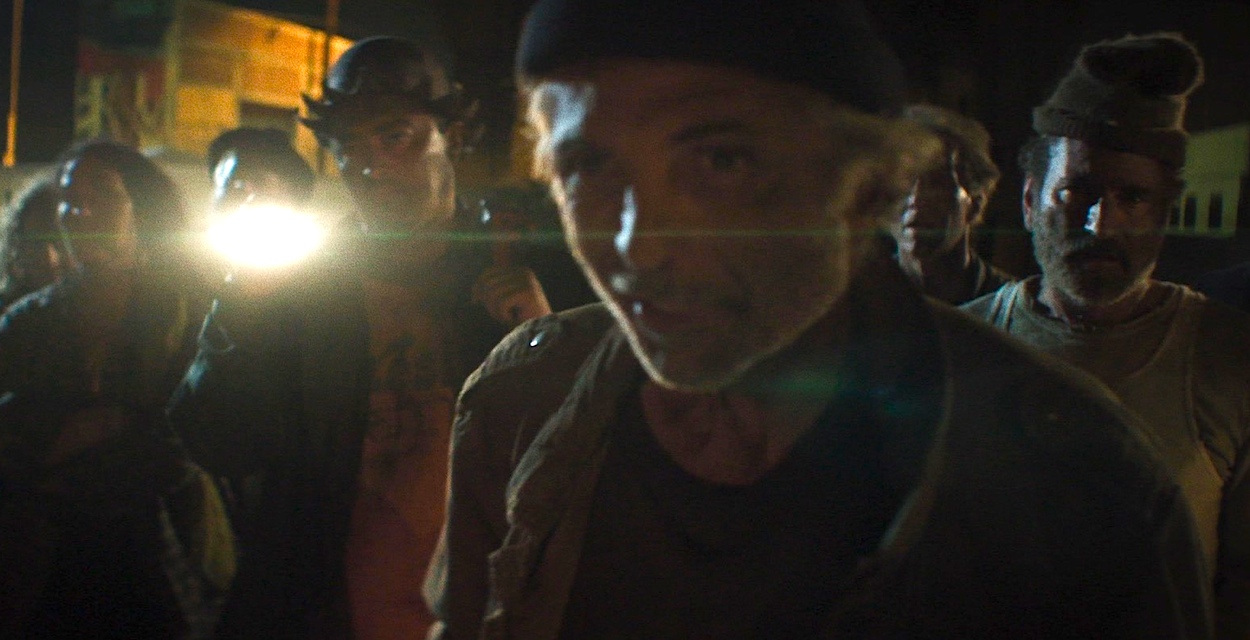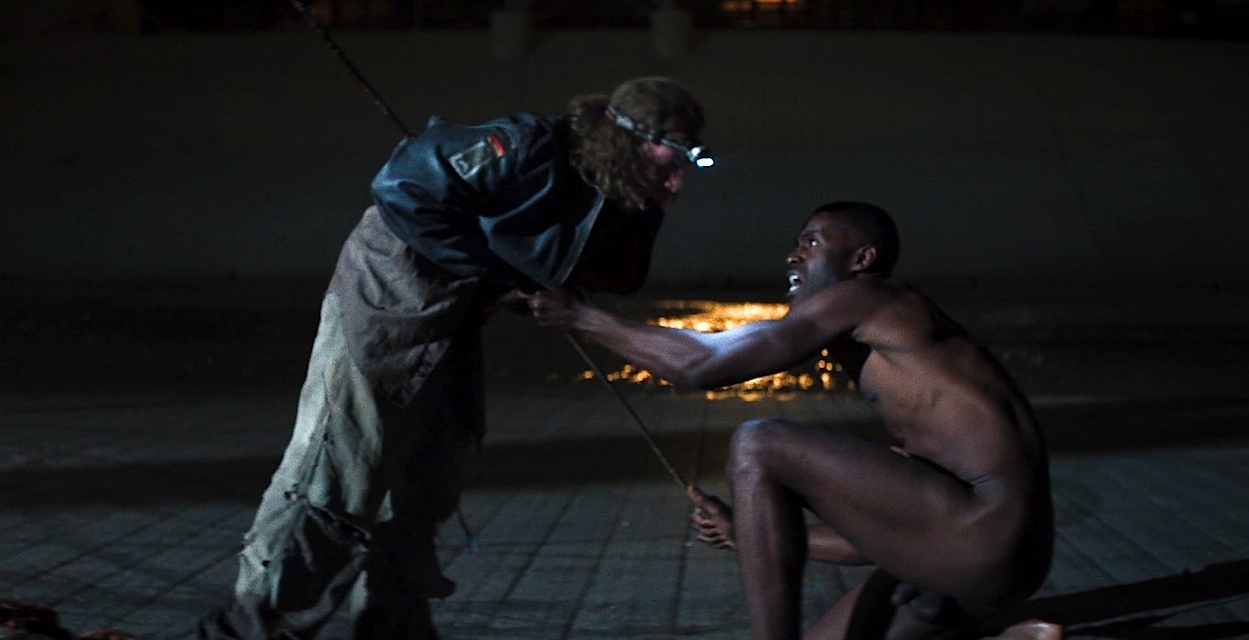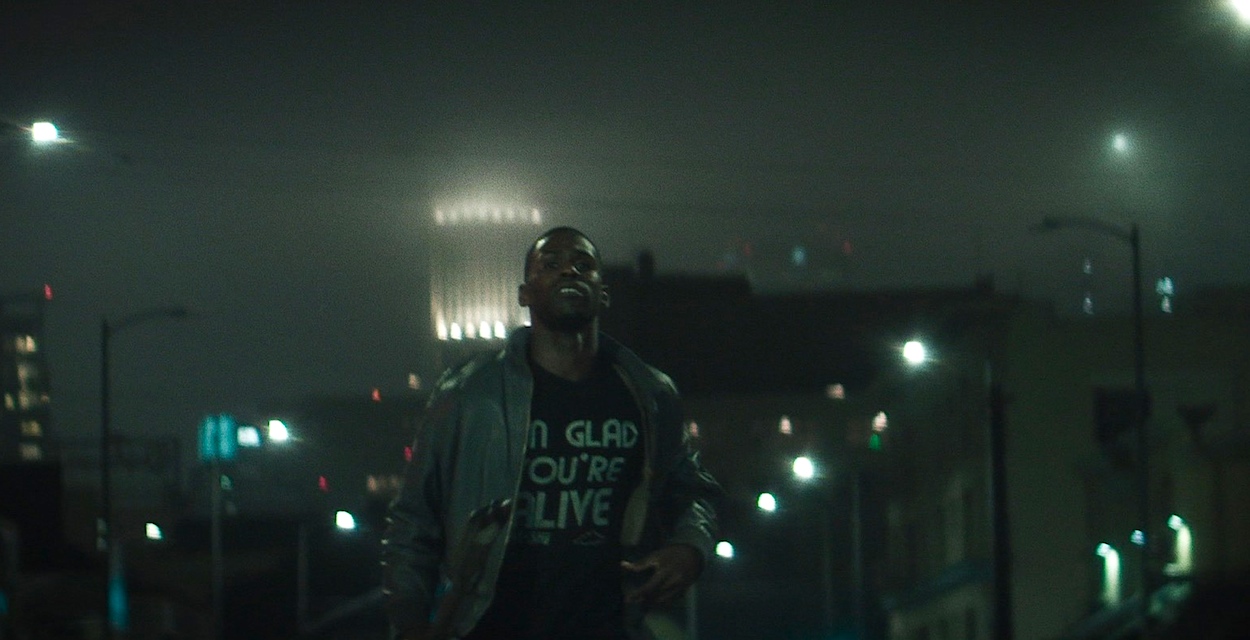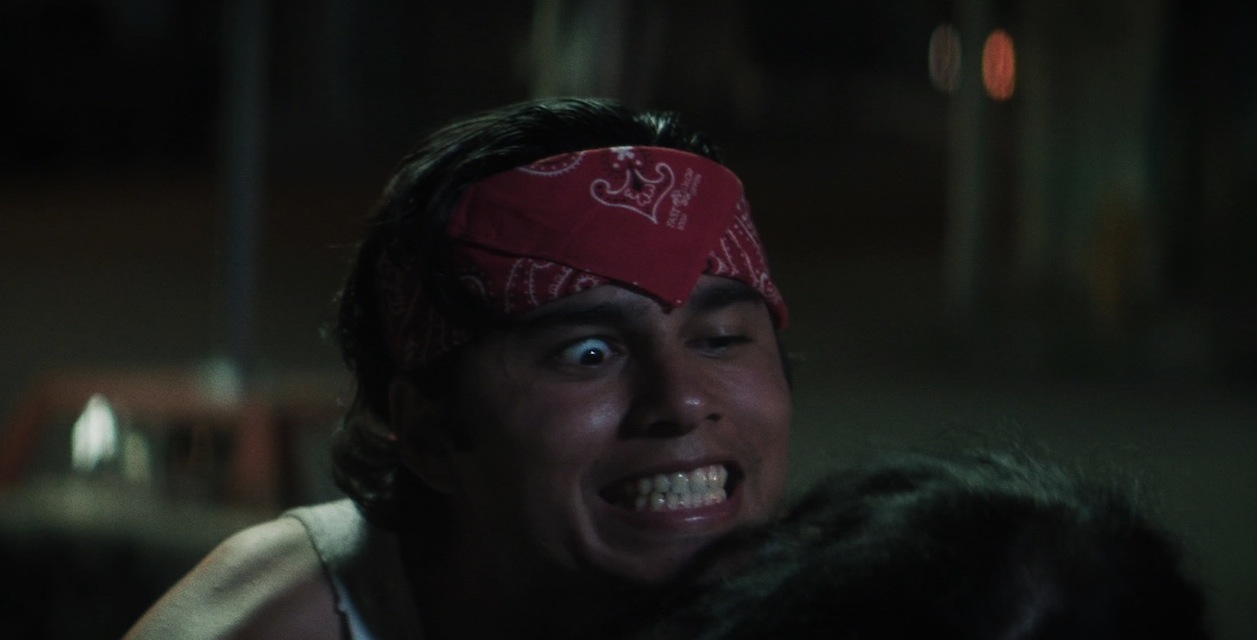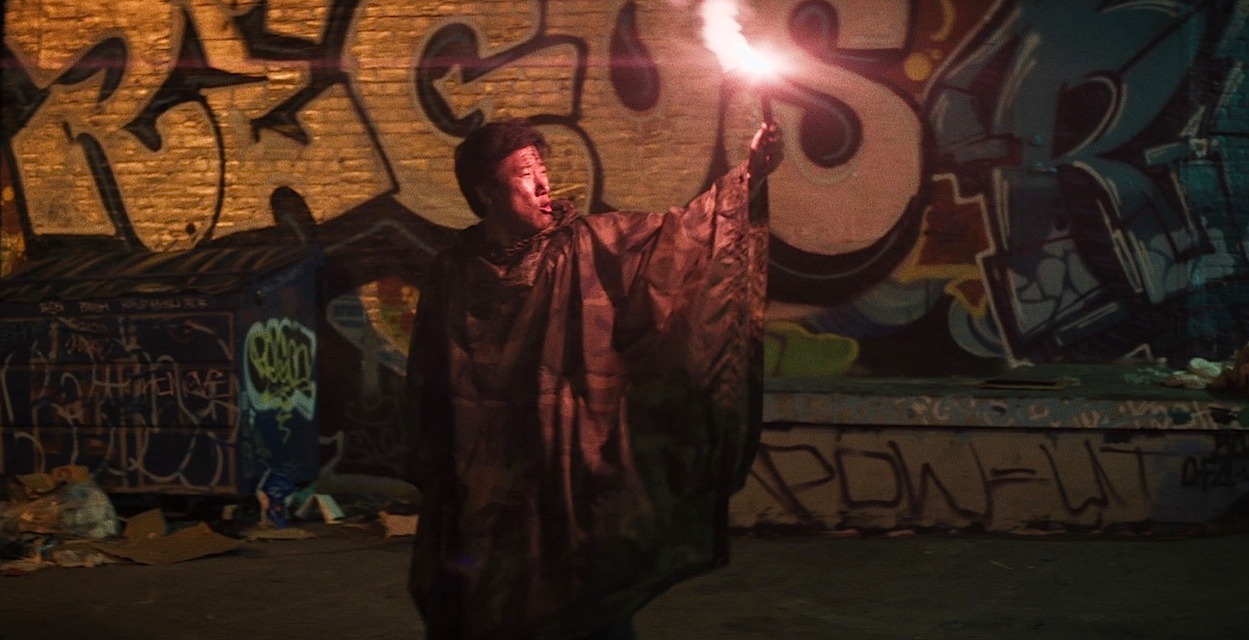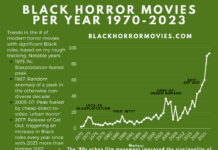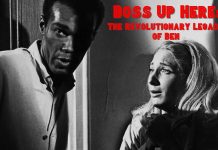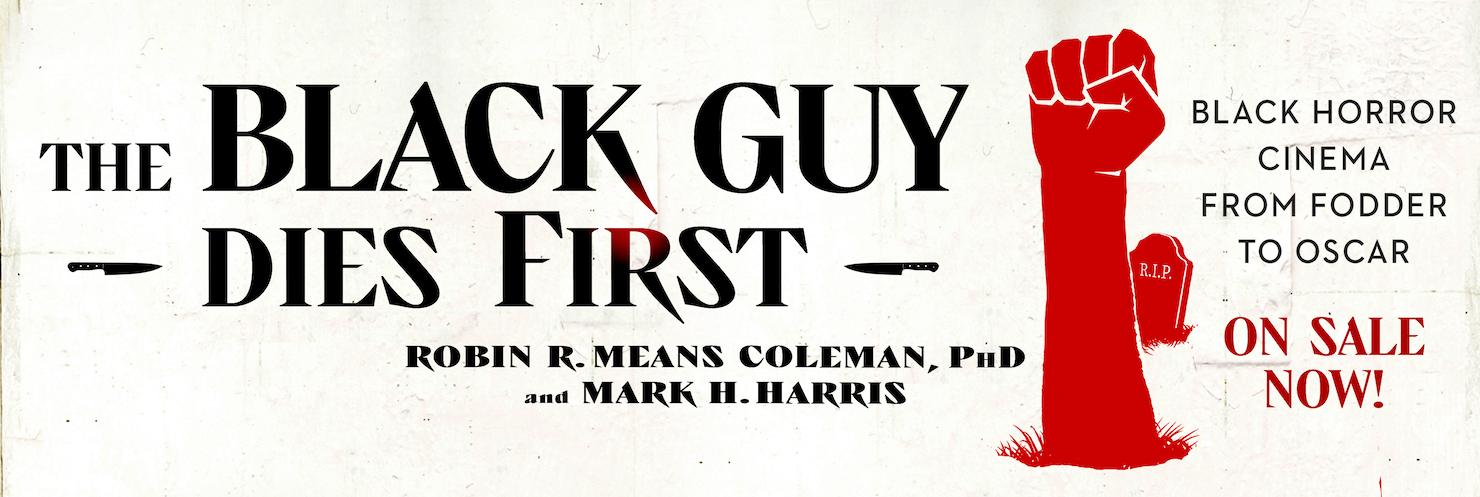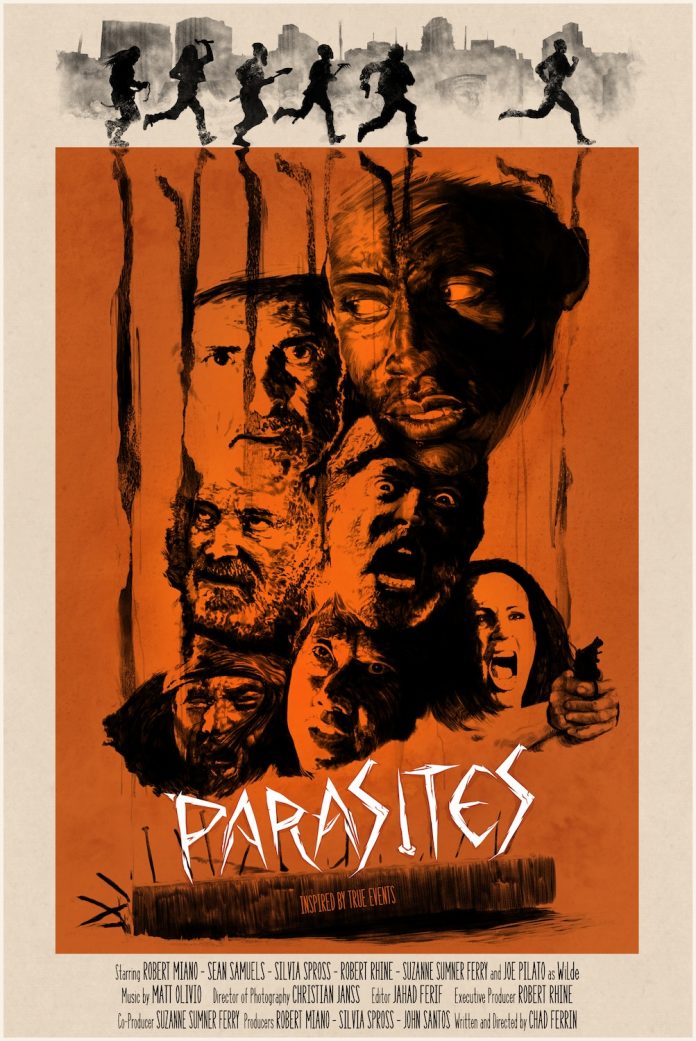In Easter Bunny, Kill! Kill!, writer/director Chad “No Relation to Bobby Mc” Ferrin showcased his fondness for recreating vintage exploitation fare and for casting black leads, and he continues to cultivate both of those preferences in the gritty thriller Parasites (on demand January 24 on iTunes, Amazon, Google Play, Vudu and Xbox).
Sean Samuels stars as Marshal, a freshman quarterback at the University of Southern California who’s returning home with two white friends (who don’t survive long enough for us to care about them) late one night after a football game. Unfamiliar with downtown Los Angeles, they get lost driving through Skid Row and the seedier parts of town and end up being accosted by a band of homeless people after their SUV gets a flat tire.
Marshal’s loudmouth friend Scotty is dismissive of the “bums,” prompting head transient Wilco (Robert Miano) into killing him and Josef, but Marshal manages to escape. Having been stripped naked, he must make his way through the mean streets of L.A. on foot with the vagrants in hot pursuit, eager to silence him before the sun rises.
Parasites is less of a horror movie than an action thriller, reminiscent of The Warriors meets Judgment Night meets The Naked Prey. Although it delivers its share of thrills, those of you familiar with Ferrin’s previous work like EBKK and Someone’s Knocking at the Door might be surprised to find its violence relatively tame in comparison.
What it lacks in gore and general sleaze, though, it makes up for in a tense atmosphere (aided by a throwback ’80s-inspired score), a fast pace (only about 80 minutes long), some striking visuals (Samuels running nude along the L.A. River carrying a spear-like rebar like an urban African warrior), solid performances (Samuels is a likable everyman, while Miano is a believable bully) and an unusually prominent sense of social consciousness.
It’s this latter aspect that truly separates Parasites from the bulk of exploitation fare, which tends to revel in stereotypes and shallowness. Ferrin, in contrast, takes pains to acknowledge that the homeless, despite their villain status in the film, are an unfairly dismissed, despised and dehumanized segment of society. He even manages to include a scene showing a mentally handicapped patient being dumped by hospital personnel onto the streets in Skid Row — sadly, a reflection of real events.
Although Marshal is black, race isn’t acknowledged as an issue in the beef between the homeless posse and the students; it’s more of a question of class divisions. However, racism is implied during interactions with police, and Wilco does resort to hurling racial slurs at his own (Latino and Asian) lackeys when they don’t perform to his standards. As with EBKK, Ferrin seems to go out of his way to avoid racial stereotypes for the most part, although like that film, there are a couple of crude Latino characters who feel more in line with the politically incorrect vintage exploitation (like, say, Tenement) he’s emulating.
For all of its strong points, Parasites stumble in a few areas — namely believability (There’s no cell phone reception in the middle of L.A.? Just how deserted is the city at night? How do these motley middle-aged adults keep catching up to a college athlete?), non-intimidating villains (A 70-year-old vs. a football player?) and awkward action sequences in which everyone seems to be moving in slow motion — frantic chases replaced by casual jogging.
Still, it all builds up to a powerful, if unoriginal, climax that leaves you wondering what Ferrin will explore in his next movie.
